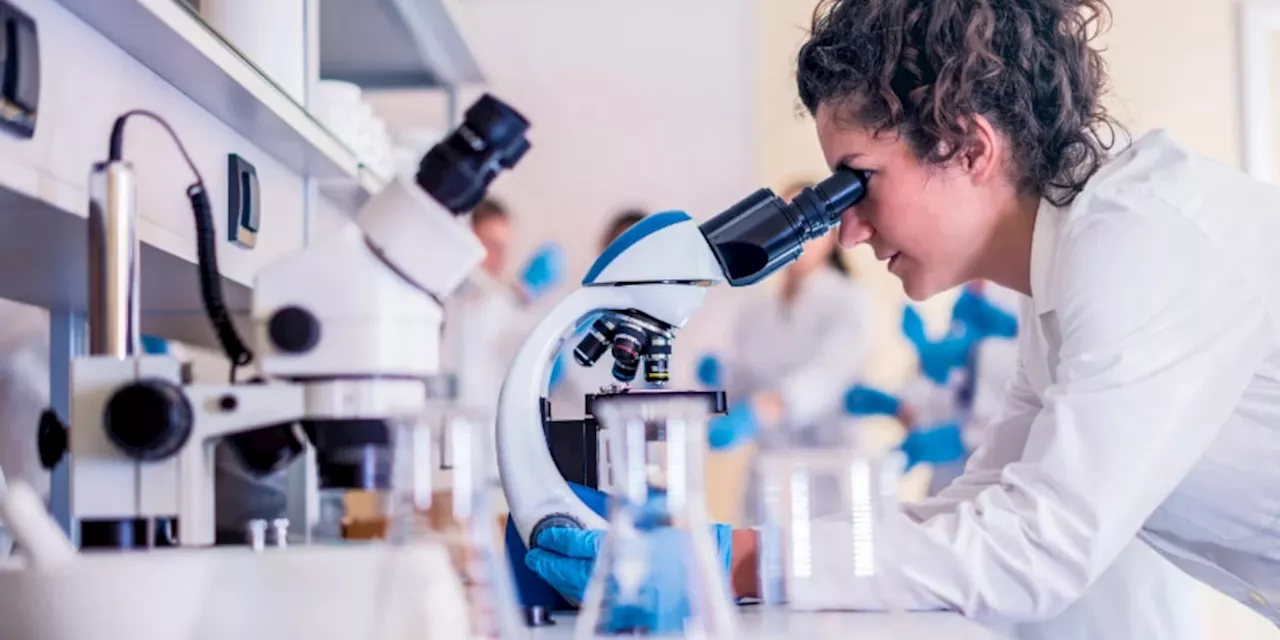Researchers develop a microstructured 'artificial lung' model using bioprinting technology.
The COVID-19 pandemic has profoundly impacted our lives, claiming nearly 7.1 million lives globally. Scientists and medical professionals have been working tirelessly to understand the virus, its transmission pathways, and effective treatments. The urgency of developing vaccines and treatments has never been greater, prompting calls for Korea to expedite its drug development efforts to match those of developed countries.
In this study, researchers from POSTECH and the KRICT created a"3D artificial lung" using three-dimensional bioprinting technology. This advanced technology uses cells and biomaterials to produce lifelike tissues and organs, reducing the need for animal testing in fields such as regenerative medicine and drug discovery.
Moreover, the team perfectly recreated the pathways by which COVID-19 drugs reach the infected epithelial layer and inhibit virus replication. Unlike conventional 2D cell culture methods where drugs are directly administered to the epithelial cells, this study evaluated the drug efficacy after they crossed the tissue barrier through the artificial lung tissue.
The research was conducted with support from the Mid-Career Researcher Program of the National Research Foundation of Korea and the Korea Health Technology R&D Project of the Ministry of Health and Welfare.Using artificial intelligence technology to identify patterns of DNA fragments associated with lung cancer, researchers have developed and validated a liquid biopsy that may help identify lung cancer ...
Lung Disease Lung Cancer Biotechnology Developmental Biology Biology Engineering Biochemistry Medical Technology
United States Latest News, United States Headlines
Similar News:You can also read news stories similar to this one that we have collected from other news sources.
 Researchers Find Speech Pattern That Predicts Cognitive DeclineDigital destination for sophisticated men & women. Live your best life with expert tips and news on health, food, sex, relationships, fashion and lifestyle.
Researchers Find Speech Pattern That Predicts Cognitive DeclineDigital destination for sophisticated men & women. Live your best life with expert tips and news on health, food, sex, relationships, fashion and lifestyle.
Read more »
 Researchers develop a way to make lifesaving phages accessible, transportable and much easier to useResearchers have developed a simple way to bring bacteriophage therapy into much closer reach for clinicians struggling to save patients with antimicrobial-resistant infections. The technology makes it possible to sort through hundreds or even thousands of phages in less than two hours to identify which will respond to a particular infection.
Researchers develop a way to make lifesaving phages accessible, transportable and much easier to useResearchers have developed a simple way to bring bacteriophage therapy into much closer reach for clinicians struggling to save patients with antimicrobial-resistant infections. The technology makes it possible to sort through hundreds or even thousands of phages in less than two hours to identify which will respond to a particular infection.
Read more »
 Researchers create groundbreaking cotton quality model to aid farmersDoes climate change have an impact on the quality of cotton? Mississippi State scientists hope to answer that question with a new way to monitor the environmental impacts on the cash crop throughout the growing season.
Researchers create groundbreaking cotton quality model to aid farmersDoes climate change have an impact on the quality of cotton? Mississippi State scientists hope to answer that question with a new way to monitor the environmental impacts on the cash crop throughout the growing season.
Read more »
 Researchers discovery new shark species in Puget SoundLocal researchers recently discovered two new shark species in Puget Sound waters and joint crews are working to determine how long they have been here and what their habits are.
Researchers discovery new shark species in Puget SoundLocal researchers recently discovered two new shark species in Puget Sound waters and joint crews are working to determine how long they have been here and what their habits are.
Read more »
 Researchers discover a new neural biomarker for OCDA recent study has identified a specific neural activity pattern as a novel biomarker to accurately predict and monitor the clinical status of individuals with obsessive-compulsive disorder (OCD) who have undergone deep brain stimulation (DBS), a rapidly emerging therapeutic approach for severe psychiatric disorders.
Researchers discover a new neural biomarker for OCDA recent study has identified a specific neural activity pattern as a novel biomarker to accurately predict and monitor the clinical status of individuals with obsessive-compulsive disorder (OCD) who have undergone deep brain stimulation (DBS), a rapidly emerging therapeutic approach for severe psychiatric disorders.
Read more »
 Researchers may have found the cause of lupus with ways of reversing the diseaseResearchers say they’ve discovered a root cause of lupus, a disease that affects hundreds of thousands of people in the U.S.
Researchers may have found the cause of lupus with ways of reversing the diseaseResearchers say they’ve discovered a root cause of lupus, a disease that affects hundreds of thousands of people in the U.S.
Read more »
